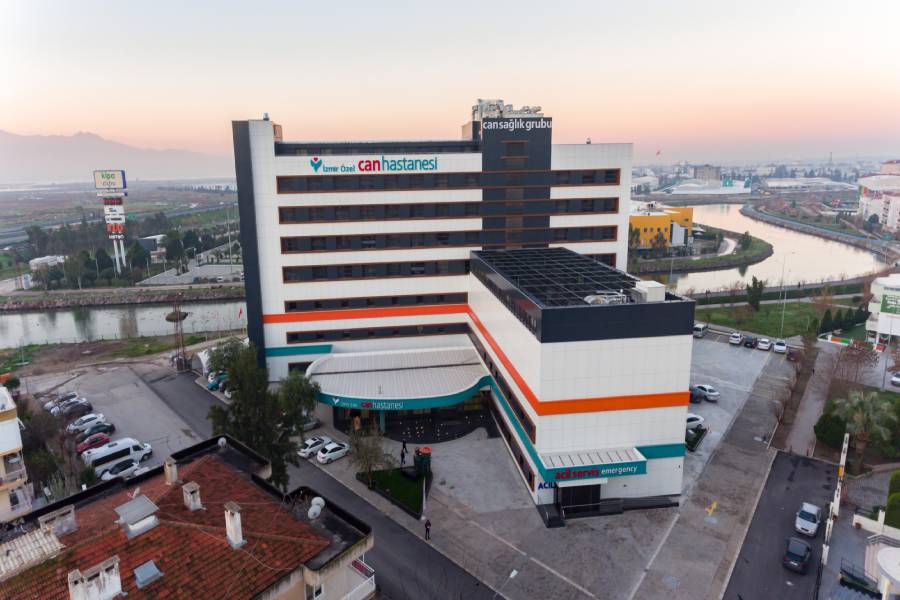What is the life expectancy of a hip replacement?
Categorised in: Genel, HEALTH GUIDE
Published Date:
Hip replacement surgery has become increasingly common, offering relief from pain and restoring mobility for those with severe hip joint damage or arthritis. Advances in joint replacement techniques and implant materials have significantly increased the longevity of hip replacements. However, the question remains: how long can a hip implant be expected to last?
The longevity of a hip replacement is influenced by several factors. These include the type of implant, the patient’s age and activity level, and the surgeon’s skill. Modern hip implants are engineered to withstand the stresses of daily movements. Yet, they are not invincible. Over time, even the most resilient hip replacements may start to wear down or loosen.
Grasping the average lifespan of a hip replacement and recognizing the signs of potential implant failure is crucial. It empowers patients to make informed decisions about their treatment and take proactive steps to extend the life of their new joint. In the subsequent sections, we will delve into the factors that impact hip implant longevity and the long-term outcomes one can anticipate from a hip replacement.
What is Hip Replacement Surgery?
Hip replacement surgery, also known as hip arthroplasty, involves the removal of damaged hip joint parts and their replacement with artificial components. This procedure is recommended for those experiencing severe hip pain and limited mobility due to conditions like osteoarthritis, rheumatoid arthritis, or hip fractures.
During the surgery, the surgeon removes the damaged cartilage and bone from the hip joint. They then replace these with prosthetic components. The most commonly used materials are metal alloys, such as titanium or cobalt-chrome, and high-density plastic. These materials are designed to mimic the natural movement of the hip joint, ensuring long-lasting durability.
Hip replacement surgery has gained popularity globally, with many opting for it in countries like Turkey. Turkey is recognized for its high-quality medical care, experienced surgeons, and advanced technology. Patients from around the world travel to Turkey for its expertise in hip replacement surgery and competitive costs.
The success of hip replacement surgery depends on several factors. These include the patient’s overall health, the quality of the hip implant materials, and the surgeon’s skill. With proper care and rehabilitation, patients can expect significant pain relief, improved mobility, and an enhanced quality of life post-surgery.
How long can a hip implant be expected to last?
The longevity of a hip replacement hinges on several critical factors. Patient age is a pivotal element, as younger individuals often subject their implants to greater stress. Activity level significantly influences wear and tear, with high-impact activities accelerating deterioration of the artificial joint.
Implant materials are another determinant of longevity. Contemporary implants, crafted from materials like titanium, ceramic, or polyethylene, are engineered for durability. These advancements in technology have significantly enhanced wear resistance, leading to improved patient outcomes.
The surgical technique employed during the procedure is also a decisive factor. Surgeons skilled in precise techniques and minimizing tissue trauma contribute to optimal implant placement. This approach reduces the likelihood of complications that could shorten the implant’s lifespan.
Additional factors, such as patient weight and overall health, also play a role in implant durability. Maintaining a healthy weight and managing conditions like diabetes or osteoporosis can extend the implant’s lifespan. This, in turn, enhances overall patient outcomes.
Average Lifespan of a Hip Replacement
The longevity of a hip replacement is influenced by various factors, yet it generally endures between 15 to 20 years. Recent analyses indicate that 90% of hip replacements exhibit satisfactory functionality after a decade, with 70-80% maintaining optimal condition after two decades. These figures underscore the robustness and efficacy of contemporary hip replacement methodologies.
Can Hospital in Izmir, Turkey, is celebrated for its outstanding hip replacement outcomes. The institution’s adept surgeons and cutting-edge facilities significantly contribute to the success of their hip replacement surgeries. Patients undergoing hip replacements at Can Hospital can anticipate a high-quality implant with a prolonged lifespan, facilitating enhanced mobility and an elevated quality of life.
Several elements impact the longevity of a hip replacement, including the patient’s age, weight, activity level, and overall health. The quality of the implant materials and the precision of the surgical technique are also pivotal. By meticulously evaluating these factors and opting for a reputable healthcare provider like Can Hospital, patients can optimize the lifespan of their hip replacement, thereby reaping its benefits for an extended period.
Signs of Hip Replacement Wear and Failure
As hip implants age, they can exhibit signs of wear and tear. This wear is a common issue, leading to implant loosening and hip pain. If these problems are not addressed, they may necessitate a hip replacement revision surgery.
Common indicators of hip replacement wear and failure include:
- Pain in the hip, groin, or thigh area
- Swelling or stiffness in the hip joint
- Reduced mobility or difficulty walking
- Clicking, popping, or grinding sensations in the hip
- Instability or weakness in the hip joint
If you notice any of these symptoms, it is crucial to seek consultation with your orthopedic surgeon. They will conduct a physical examination and may request imaging tests, such as X-rays or MRIs, to evaluate your hip implant’s condition.
In some instances, conservative treatments like physical therapy or medication can alleviate symptoms. However, if the damage to the implant is severe, a hip replacement revision surgery may be required. This procedure involves the removal of the worn or damaged components of the original implant and their replacement with new ones.
Maximizing the Lifespan of Your Hip Replacement
Following hip replacement surgery, it is imperative to adopt proactive measures to prolong the life of your implant. A comprehensive approach, encompassing physical therapy, lifestyle adjustments, and consistent follow-up with your orthopedic surgeon, is essential. Adherence to these recommendations can significantly enhance the longevity of your hip replacement, ensuring a pain-free, active lifestyle for the foreseeable future.
Physical therapy emerges as a pivotal component in the recovery process. Your physical therapist will craft a tailored rehabilitation plan to enhance strength, flexibility, and mobility in your hip joint. They will instruct you in exercises aimed at the muscles surrounding your hip, ensuring proper alignment and mitigating potential complications. Regular adherence to your physical therapy regimen is crucial for the long-term success of your hip replacement.
Furthermore, integrating lifestyle modifications can profoundly influence the longevity of your hip implant. A healthy weight, achieved through a balanced diet and regular physical activity, reduces stress on your hip joint, thereby minimizing wear and tear. Engaging in low-impact activities such as swimming, cycling, and walking is beneficial for maintaining fitness without overstraining your hip. It is crucial to abstain from high-impact sports and activities that could lead to injury or accelerated wear of your hip replacement.
Consistent follow-up care with your orthopedic surgeon is another critical factor in maximizing the lifespan of your hip replacement. Regular appointments enable your surgeon to monitor the condition of your implant, evaluate your progress, and address any concerns promptly. They may conduct periodic X-rays or other diagnostic tests to ensure optimal functioning of your hip replacement and detect any signs of wear or loosening. By remaining proactive with your follow-up care, you can promptly address any potential issues, thereby extending the life of your hip implant.

Why British Citizens Choose Turkey for Health Services?
British citizens are increasingly opting for Turkey when seeking medical treatments due to a combination of superior healthcare services, affordability, […]

Psychological Effects of Genital Aesthetics on Body Image
In a society increasingly focused on physical perfection, the realm of genital aesthetics has surfaced as an area of both […]

Common Concerns About Genital Plastic Surgery
Genital plastic surgery, a burgeoning field within the realm of cosmetic enhancements, has witnessed a notable surge in popularity. Procedures […]

In which cases is labiaplasty necessary?
Labiaplasty, a procedure that has recently garnered significant attention, involves the surgical reduction of the labia minora. This operation, also […]

Healthy Recovery Process After Genital Aesthetic Surgery
Day Things To Do Things to Avoid 1-7 Days – Bed rest – Using medications recommended by the doctor – […]